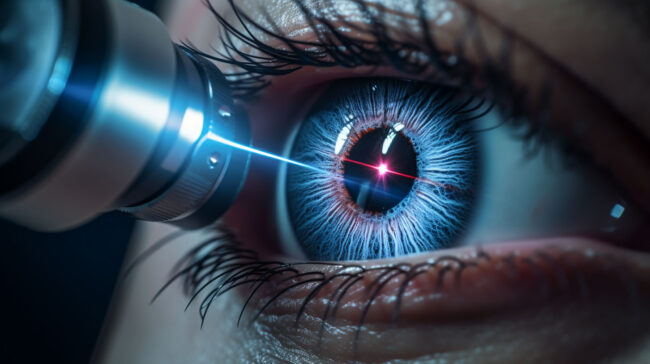Visual Freedom Unveiled: Exploring Cutting-Edge Eye Surgery to Eradicate Diopters
Reclaiming clear vision is a journey many individuals embark upon, especially those burdened by diopters. Vision impairment due to diopters can significantly impact one’s quality of life, influencing daily activities and diminishing overall well-being. Fortunately, advancements in medical technology have introduced innovative solutions, including various eye surgeries aimed at correcting diopters and restoring visual acuity.
LASIK Eye Surgery Chicago stands out as a leading option for individuals seeking freedom from glasses or contact lenses. This procedure involves reshaping the cornea using a laser, allowing light to properly focus onto the retina, thereby correcting refractive errors such as myopia, hyperopia, and astigmatism. With its quick recovery time and high success rates, Lasik has become a preferred choice for many seeking diopter correction.

Another noteworthy option is PRK (Photorefractive Keratectomy), a similar procedure to Lasik but with some variations in technique. PRK involves removing the thin outer layer of the cornea (the epithelium) before reshaping the underlying tissue with a laser. While PRK may entail a slightly longer recovery period compared to Lasik, it remains a viable option, especially for individuals with thinner corneas or those not eligible for Lasik due to certain corneal irregularities.
Beyond these conventional methods, advancements like SMILE (Small Incision Lenticule Extraction) surgery offer additional choices for diopter correction. SMILE involves creating a small incision in the cornea to extract a lenticule, thereby reshaping the cornea and correcting refractive errors. This minimally invasive procedure boasts reduced risk of dry eye and maintains the cornea’s structural integrity, making it an attractive option for many candidates.
Whether opting for Lasik, PRK, SMILE, or other emerging techniques, undergoing eye surgery to eliminate diopters can be transformative, liberating individuals from the constraints of corrective eyewear. However, it’s crucial for individuals considering such procedures to undergo thorough evaluations and consultations with qualified ophthalmologists to determine the most suitable approach based on their unique eye anatomy and refractive error profile.
As the realm of eye surgery continues to evolve, the prospect of achieving clear vision without diopters becomes increasingly attainable, offering newfound clarity and freedom to those ready to embrace it.
